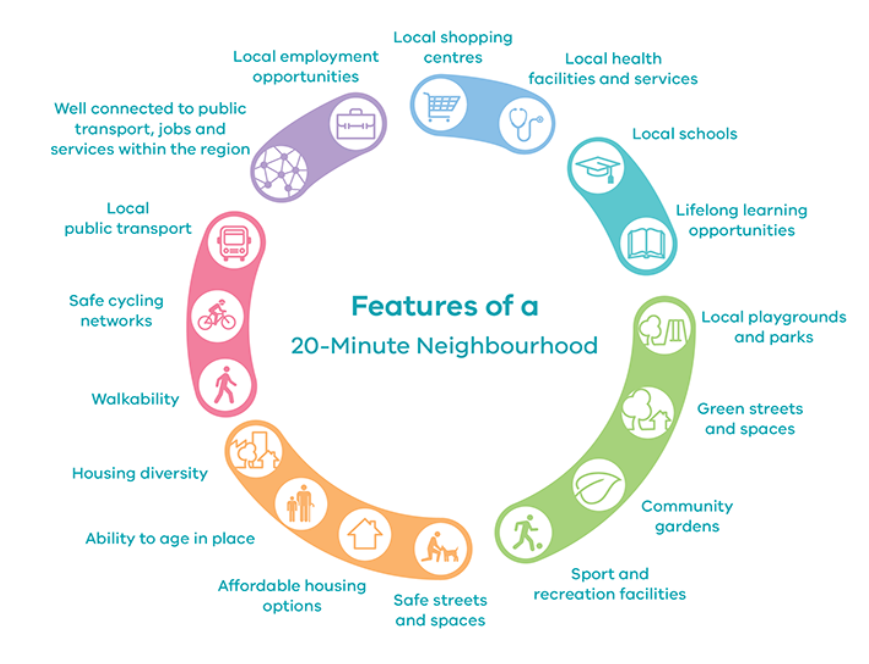The 15-Minute City, U.S., 2020
5 minutes Date Launched: Jun 16, 2020 Dates given are approximate. Pilot Project Timeframe: The 15-Minute Project was introduced via a blog post on June 16, 2020.

Summary
The 15-minute city, a term first coined by Carlos Moreno of Pantheon Sorbonne University in Paris, is an urban framework that believes in improving access by spatially orienting and developing communities to live within a 15-minute radius (typically on foot or by bike) of essential urban services. The 15-Minute City Project was recently developed in February 2020 and is designed to help urban transformations that are focused on improving access be “ambitious, inclusive, measurable, and effectively implemented. Dan Luscher, urbanist and San Francisco resident and the creator of the 15-Minute City Project, believes the 15-minute city is the urban equivalent of human-centered design where we start by looking where an individual lives and where they need to go in their day and figure out how to design our neighborhoods around that behavior. According to Carlos Moreno’s 15-minute city framework, there are four key characteristics:
- Proximity: Housing and essential needs must be close.
- Diversity: Land uses must be mixed to provide a variety of urban amenities in close proximity.
- Density: There must be enough people to support a diversity of businesses in a compact land area.
- Ubiquity: In order for this to be an equitable framework, these neighborhoods must be so common that they are available and affordable to anyone.
These characteristics, along with a shift in city-making from space to time, are critical to the strategy. Moreno calls this consideration of time, how people spend their time and how we can build and adapt cities to reduce time spent between those places, “chrono-urbanism”. While the concepts that the 15-minute city are built on are not new, the comprehensive framework is being included more explicitly in cities around the world like Paris, Melbourne, and Portland. Luscher believes that broad public engagement and buy-in, detailed measurement and analysis, engaging all types of actors, and cost-effectiveness are critical elements to implementing the 15-minute city. The Project hopes to develop a repository of information about 15-minute city efforts and stimulate thoughtful discussions around the concept to advocate for the develop of a data-driven approach.